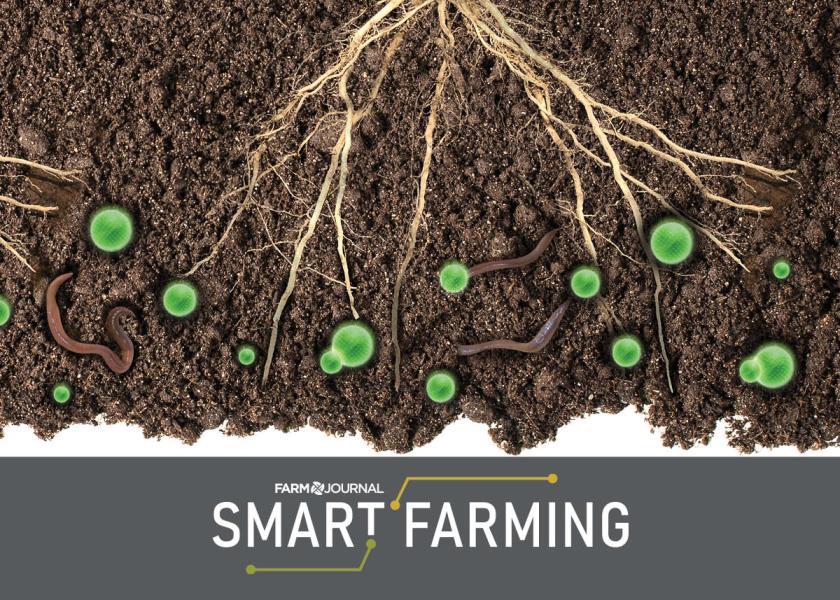Break Down The Barriers In The Biological Space

Farm Journal’s Smart Farming Week is an annual week-long emphasis on innovation in agriculture. The goal is to encourage you to explore and prioritize the technology, tools and practices that will help you farm smarter. Innovation today ensures an efficient, productive and sustainable tomorrow.
According to the Farm Journal Harvest Study, which asked almost 600 farmers if they used a biological product in 2023, more than 61% said no. Among those who did use biologicals, average satisfaction rates were as high as 80%, depending on the category.
The NewLeaf Symbiotics team says reluctance to try biologicals is often a result of feeling overwhelmed by the options available.
“Many of the offerings seem similar, and the data isn’t always differentiated,” says NewLeaf CEO and president Brent Smith. “You have to pause and ask ‘How deep is the science and performance? What kind of documentation is there to provide the reassurance I need before using it?’”
As the options for biological products are on the rise, so are advancements in the technology. Michael Frodyma, NewLeaf vice president of manufacturing operations, says farmers and retailers may not realize many of today’s products no longer require special storage, new equipment or a change in practice.
“The materials and products coming out in this biological space are closer to what a grower is used to from an input standpoint—where they don’t have to think, ‘I have to keep that in the fridge’ or ‘I have to handle this carefully,’” Frodyma says. “The industry has put in the work to eliminate these barriers.”
Increasing Adoption
As the technology gets closer to meeting farmers where they are, increased education efforts will also become more important.
Natalie Breakfield, NewLeaf vice president of research and discovery, believes an important piece of education will be setting realistic expectations for users.
“Biologicals are not meant to be a replacement for other products, but a complement to farmer systems. Our technology has demonstrated strong efficacy across regions and we’re looking to create impact where our products can support those systems,” she says. “It’s about sustainable, measurable impacts in water, air and soil.”
Sustainability is something Smith expects to play a large role in product adoption as well as overall growth in the biological space.
“Companies have ESG goals and commitments they’ve made publicly that include environmental targets. That will likely come through biological products and solutions,” Smith says. “Technology advancement coupled with urgency around having to hit commitments is a good recipe for the advancement of biologicals.”
And as product adoption and advancement continue to rise, trust in the industry will follow.
“The industry has worked to demystify biologicals and ensure they’re easier to implement – that’s paying off,” Breakfield says. “More growers are using these products and seeing the benefits. The proof is in the acreage expansion NewLeaf and other technology providers are seeing in their geographies.
NewLeaf Launches New Corn Rootworm Technology







